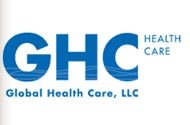
|
OVERVIEW
ACOs in both the public and private sector have continued to grow over the past several years, ushering in more experience and evidence on what is working and ways to continue evolving accountable care models. The Fifth National Accountable Care Organization Summit (www.ACOSummit.com) will provide an unprecedented opportunity to discuss remaining barriers to widespread ACO implementation and strategies to overcome them. The Summit brings together leading policymakers, experts, and ACO implementers to provide unique and in-depth insights on ACO implementation and ongoing health care reform. The Summit will cover a variety of topics including innovative contract and payment arrangements, performance measurement, patient engagement, unique challenges and opportunities for physician-led ACOs, clinical leadership, coordinating care for high-risk and vulnerable populations, strategies for clinical transformation, and innovations in health data use and management.
WHAT IS AN ACO?
ACOs are groups of physicians, hospitals, and other providers that receive financial rewards for achieving patient-focused quality targets and demonstrating reductions in overall spending growth for their defined patient population. ACOs can be organized in a number of ways, ranging from fully integrated delivery systems to networked models within which physicians in small office practices can work together to improve quality, coordinate care, and reduce costs. ACOs can also feature different payment incentives, ranging from "one-sided" shared savings within a fee-for-service environment to a range of capitation arrangements with quality bonuses. In addition, ACOs are compatible with a range of other payment reforms, such as medical homes and bundled payments; they can help assure that these reforms lead to sustainable quality improvements and cost reductions. In sum, ACOs provide an ideal mechanism to transition from paying for volume and intensity to paying for value.
HOW IS ACO IMPLEMENTATION PROCEEDING ACROSS THE COUNTRY?
Since 2012, the Centers for Medicare & Medicaid Services (CMS) has recruited over 360 organizations across the country to participate in the Shared Savings Program and the Pioneer ACO Model, both of which aim to promote accountability for the care of Medicare FFS beneficiaries, coordinate care for all services provided under Medicare FFS, and encourages investment in infrastructure and redesign care processes. CMS has recently released first year financial and quality performance results for 114 MSSP and 32 Pioneer participants. While a majority of these ACOs were able to attain quality improvement, only about a quarter were successful at reducing spending enough to qualify for shared savings. These early results suggest a continued path forward, but also indicate that more work is needed for ACOs to succeed at their dual aim of increasing quality and reducing costs.
Beyond Medicare ACO initiatives, interest and participation in accountable care reforms has been growing both in states and in the private sector. Several states, including Oregon, Colorado, Arkansas, and Minnesota have developed programs to support the transition toward ACO-like models for either their Medicaid programs or state employees. There are now over 250 private sector ACOs with all of the major private health plans implementing payment reforms similar to the ACO model; like ACOs, these payment reforms include accountability for the full continuum of patients' care, payment contingent upon improving the quality and coordination of care, and responsibility for cost management within a target budget. In tandem with the Medicare Shared Savings Program, the Pioneer ACO Model, and other innovative programs in Medicare, these private sector efforts will be instrumental in moving ACO implementation forward as health care reform progresses.
WHO SHOULD ATTEND
- Executives and Board Members of ACOs, Health Plans, Health Systems, Hospitals and Physician Organizations
- Medical Directors
- Physicians
- Nurses, Nurse Practitioners and Other Allied Health Professionals
- Pharmacists and Pharmacy Benefit Managers
- Representatives of Purchasers, including Private Employers and Public Purchasers
- Consumer Organization Representatives
- Federal and State Government Officials
- Health Care Regulators and Policy Makers
- Health Benefits Consultants
- Health Care Attorneys and In-house Counsel
|
- Health Services Researchers and Academics
- Health Care Attorneys and In-house Counsel
- Chief Financial Officers
- Chief Innovation Officers
- Directors of Accountable Care
- Directors of Quality Management and Improvement
- Directors of Government Programs
- Directors of Medicare Programs
- Directors of Medicaid Programs
- Directors of Network Contracting
- Directors of Provider Relations
- Directors of Finance and Reimbursement
- Pharmaceutical Executives
- Pharmaceutical Consultants
|
|
|

|

